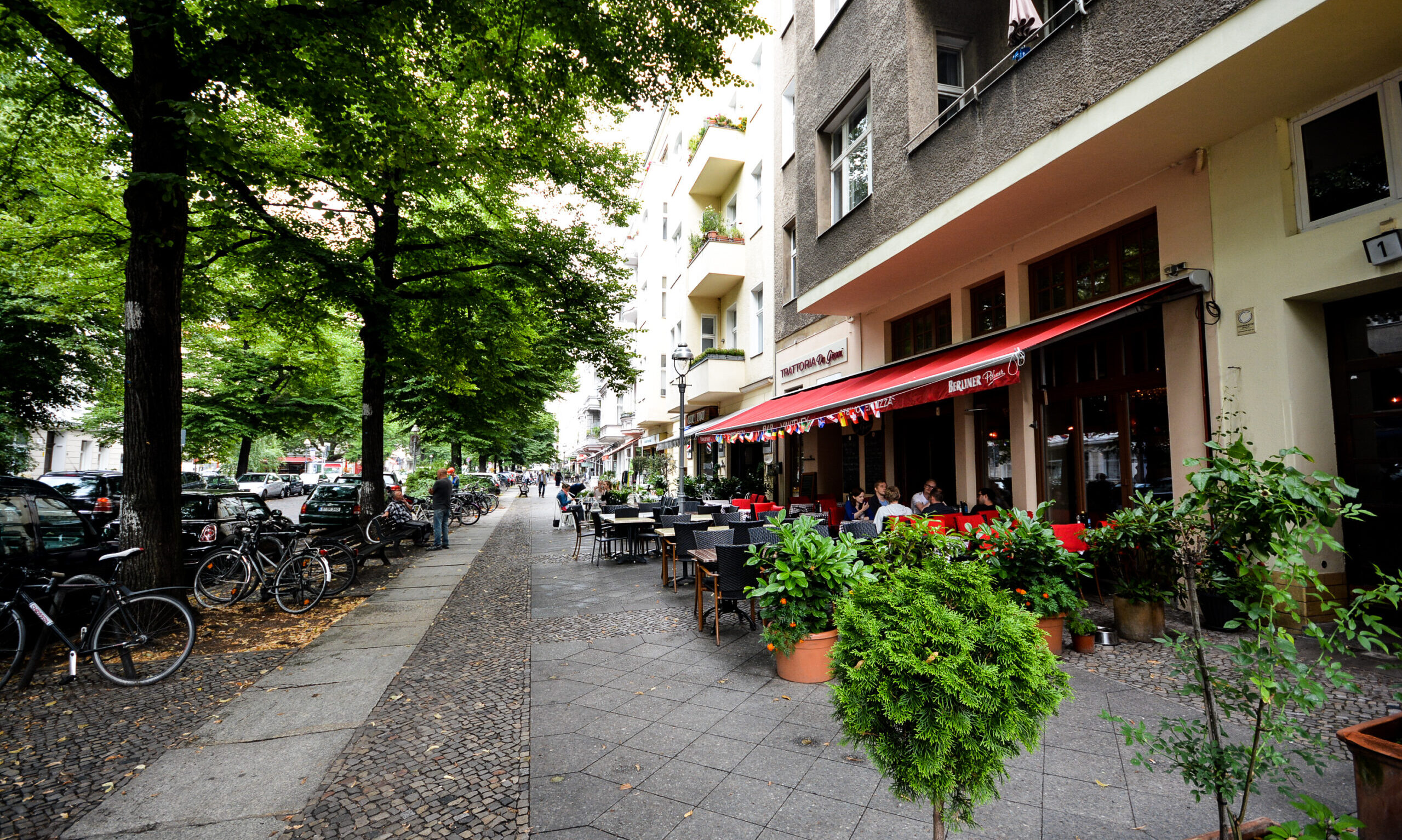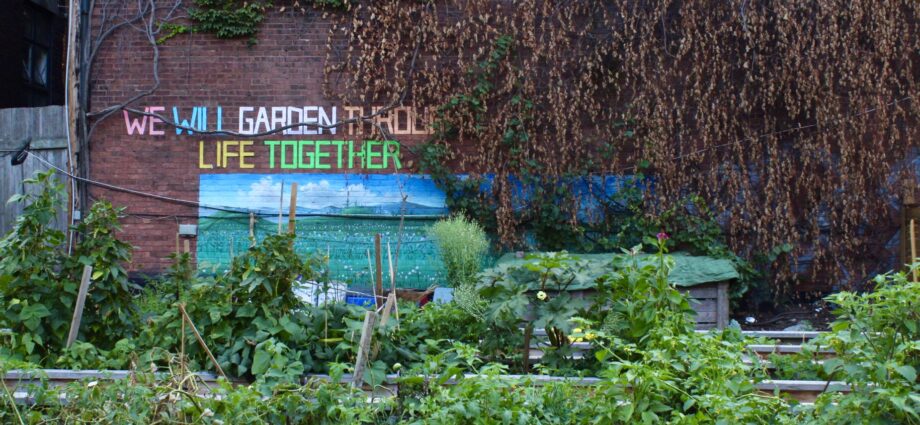Toronto’s local community gardens bring people together
By Toronto Correspondent Carlos Ruiz
It’s harvest season in southern Ontario, the region where Toronto is located. It’s not common for urbanites to care much about harvest season or agriculture, but a growing number of Torontonians are becoming more interested in growing their own food and flowers and doing what they can to help tackle the climate crisis. Thus, to commemorate the fruits and vegetables that grow in our city, this week was declared Urban Agriculture Week in Toronto.
…community gardens can now play an even bigger role in providing access to an affordable healthy diet, particularly in lower-income areas like Parkdale, where reliance on local food banks has increased dramatically in the last couple of years.
There are many community gardens around the city that are celebrating this week with cultural events and local markets, so I went to visit two of the local community gardens in my neighborhood, Parkdale.
First I went to Masaryk Park, where the Hope community garden is located. This garden is in the heart of Parkdale just south of busy Queen Street West and next to the Masaryk-Cowan Community Recreation Center.
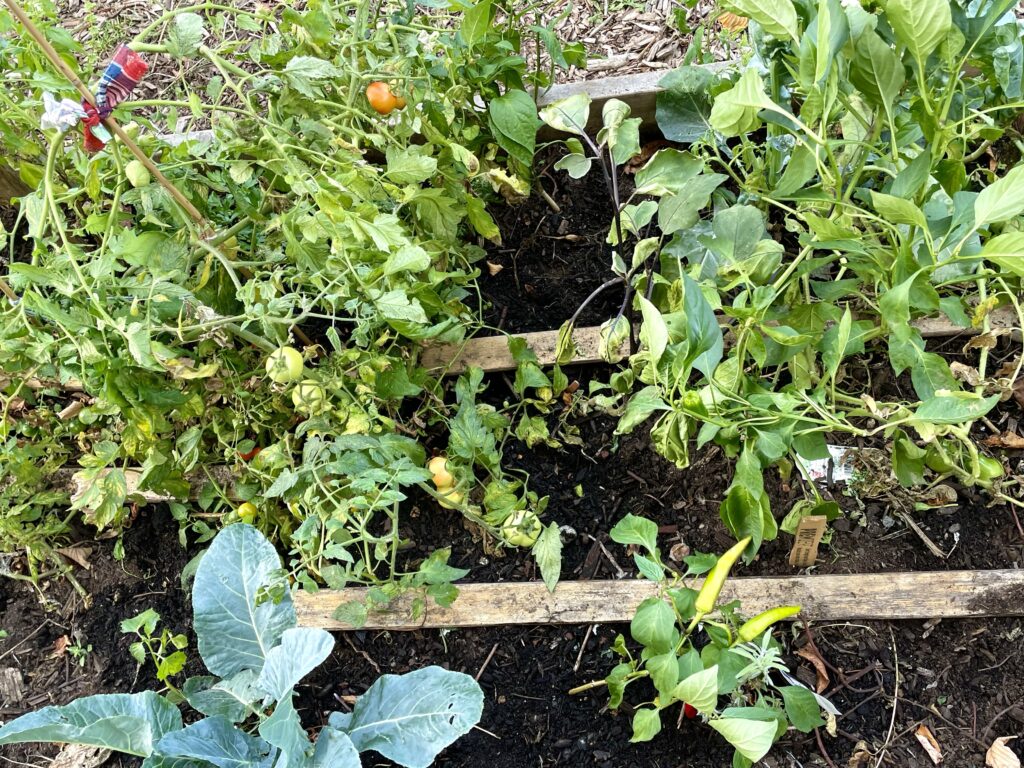
The park hosts the Parkdale Good Food Market every Thursday from June to October and different vendors have the opportunity to display their products, including fresh produce and handmade scented candles.
But what’s particularly interesting is that Milky Way Garden sits on community-owned land. This community-owned system means that decisions regarding the design of the garden and what vegetables will be grown are made by the community.
I spoke with Fatim, a volunteer, who told me that some of the produce is grown in the local community gardens while some of it is brought from the nearby Ontario Food Terminal. He pointed out that since the whole point of the market is to help the Parkdale community to have access to fresh fruits and vegetables, the price of the produce is reduced, which actually makes it more affordable than at the supermarket.
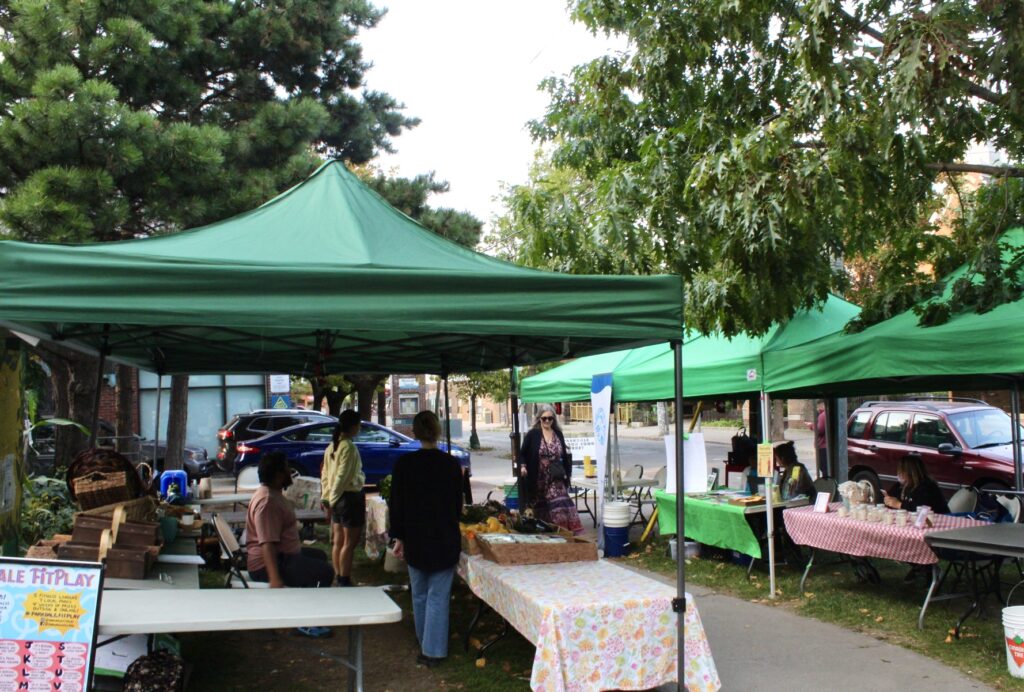
After buying some bananas, oranges and plums, I walked down the street to visit the other community garden in the area, the Milky Way Garden. This garden, as well as Hope Garden, is run by Greenest City, a local not-for-profit organization whose mission, according to their website, is to “build healthy, inclusive neighborhoods through education and empowerment to preserve, protect and improve the environment”.
Community gardens can also play a vital role in the fight against climate change, especially since one of the main problems we have is the lack of native insects and pollinators due to the overuse of pesticides and the prevalent practice of monoculture.
But what’s particularly interesting is that Milky Way Garden sits on community-owned land. In 2016 the 7000 square feet property was bought by the Parkdale Neighborhood Land Trust (PNLT) for over $115,000 CAD, with a big chunk of that money coming from donations by community members and local business owners. Since then, the land has been leased to Greenest City who operates the site under a long-term contract.
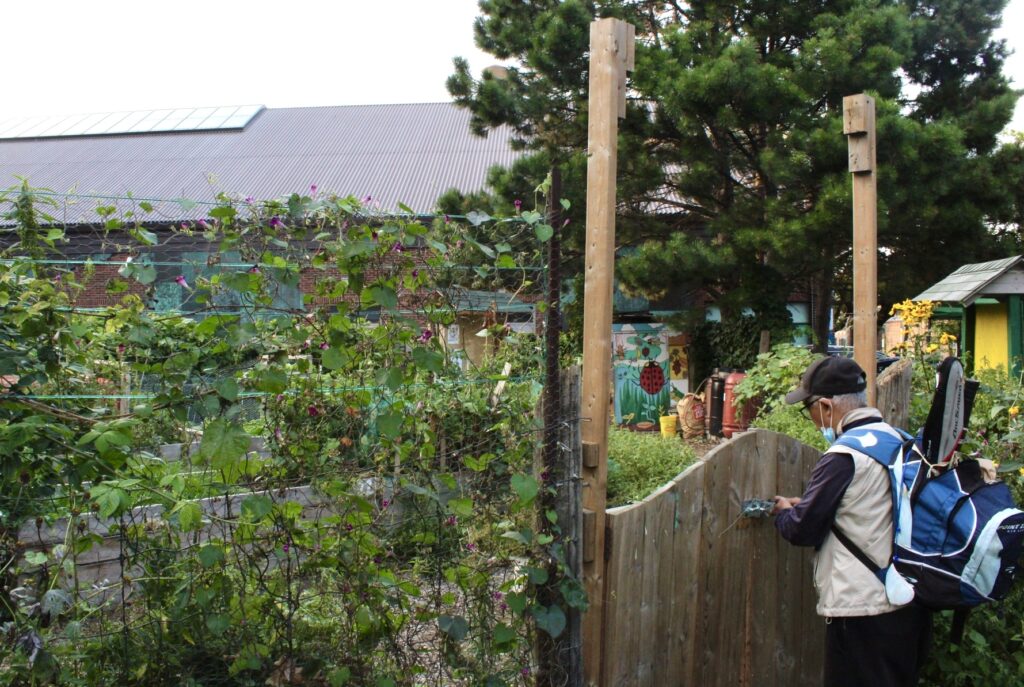
Community gardens can be little oases in the concrete jungle, but we need to have more of them throughout the city.
This community-owned system means that decisions regarding the design of the garden and what vegetables will be grown are made by the community. Most of the caretakers of the gardens are Tibetan immigrants who have lived in Parkdale for decades – Toronto has the largest Tibetan population outside of Tibet and India- and these gardens are vital for their community. Many of them live in the mid-rise apartment buildings on busy Jameson Avenue so participating in the gardens gives them the opportunity to be around nature, friends and family, and to grow food for their own consumption.
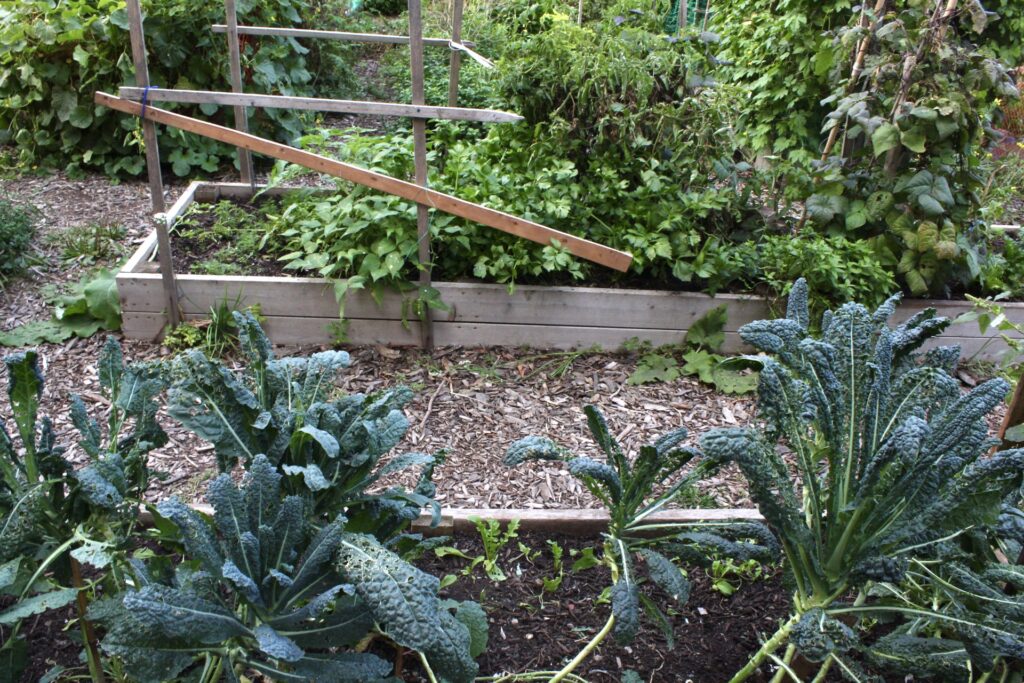
The soaring inflation in Canada at the moment means that a lot of families can’t afford fresh produce and rely on unhealthy processed foods. Therefore, community gardens can now play an even bigger role in providing access to an affordable healthy diet, particularly in lower-income areas like Parkdale, where reliance on local food banks has increased dramatically in the last couple of years.
Community gardens can also play a vital role in the fight against climate change, especially since one of the main problems we have is the lack of native insects and pollinators due to the overuse of pesticides and the prevalent practice of monoculture. Community gardens can be little oases in the concrete jungle, but we need to have more of them throughout the city.
(Sources: https://greenestcity.ca/history-and-values, http://www.pnlt.ca/milkywaygarden/)

Carlos is an avid walker and cycling enthusiast based in Toronto, Canada. With a background in Political Science and teaching, he believes walkable cities play a vital role in the development of local economies, the environment and public health as well as contributing to the strengthening of democratic values. Carlos is a strong advocate of changing the car-centric culture of North America and strongly believes in education as the most important tool for positive change.
Read Toronto & Bogotá Correspondent Carlos’ content here
Learn more about the Global Walkability Correspondents Network here
